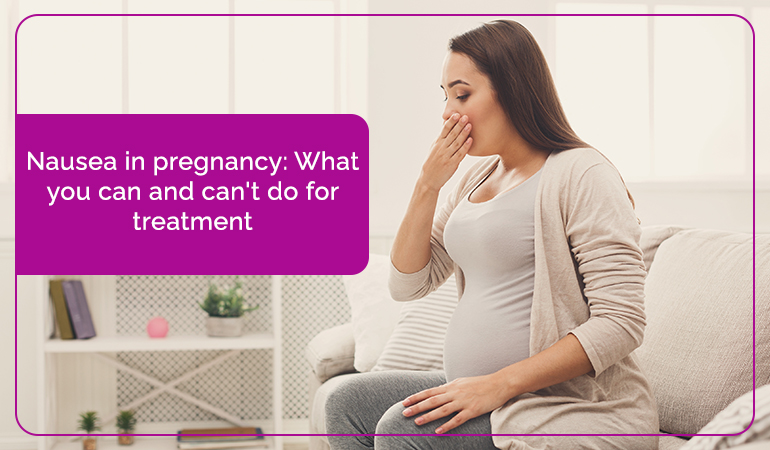If you were pregnant, then you are actually familiar with that queasy, lingering nausea that comes when you are pregnant. About 70% of pregnant women experience nausea during pregnancy and it is one of the most uncomfortable symptoms.
What Is The Main Reason For Nausea During Pregnancy?
Nausea is mainly linked to the pregnancy hormone – hCG (Human Chorionic Gonadotropin) which is released when the fertilized egg attaches to the uterine lining.
In Which Week of Pregnancy Does Nausea Start?
Nausea is severe during early pregnancy, ie., within the first trimester (includes up to week 13 of pregnancy), and is associated with vomiting. Luckily, for a few pregnant women, the symptoms usually disappear in the second trimester after hCG hormones peak. But for a few unfortunate women, pregnancy nausea can last all nine months. For them, morning sickness is not only limited to morning, but it is all-day sickness because the truth is it can strike at any time of the day and night, which can be really awful.
But on the other hand, the good news is that typical nausea and vomiting experienced during pregnancy is unlikely to harm your baby. If these symptoms are so severe, you can’t keep any fluids or foods down, which is referred to a condition called hyperemesis gravidarum – a medical condition that has to be provided immediate attention, because if left untreated, this condition has the potential to be harmful to the developing foetus.
Lifestyle Changes & Natural Nausea Remedies To Try
Drug choice for nausea requires more thought when you are pregnant. Often, pregnant women are able to manage their nausea with home remedies, small & frequent snacks & meals, eating hard candies, or eating products that contain ginger.
It is also important to avoid nausea triggers such as stuffy rooms, odours, noise, humidity, heat, or any physical motion. Not getting enough sleep can also aggravate nausea symptoms. To help manage nausea, here is a checklist of natural remedies to try if you are experiencing nausea while you are pregnant:
- Trying to include ginger products – ginger ale, ginger candies, ginger teas.
- Eating small and frequent meals.
- Limiting any spicy or acidic foods.
- Getting enough sleep and rest.
- Avoid entering stuffy rooms or inhaling strong odours.
- Wearing anti-nausea wristbands.
You can also try homoeopathic procedures such as acupressure, etc., to help yourself feel relieved from morning sickness.
Over-the-Counter Medications to Treat Your Morning Sickness
OTC (Over-the-Counter) medications do not ask for any doctor’s prescription, but on the other hand, you should not use these medicines without the consent of your doctor. Some of these OTC drugs can help you feel relieved from nausea and vomiting to disappear to some pregnant women.
- Vitamin B6
- Emetrol
- Reflux medication – Pepcid
- Nighttime sleep aid such as Unisom
Vomiting & Severe Nausea During Pregnancy
Some pregnant women experience extreme nausea and vomiting that can’t be controlled with diet or any other OTC medication, wherein the condition is referred to as hyperemesis gravidarum. If you are suffering from such severe cases, then it is advised to consult your doctor and ensure that no other medical conditions are involved.
There are many prescribed medicines that are available to treat extreme morning sickness, but pregnant women are always excluded from clinical trials. This makes it difficult to understand the potential harm of a drug when used during pregnancy. So, it is very important to weigh the potential risks of leaving your morning sickness untreated. Consult your healthcare provider regularly and get yourself checked.

